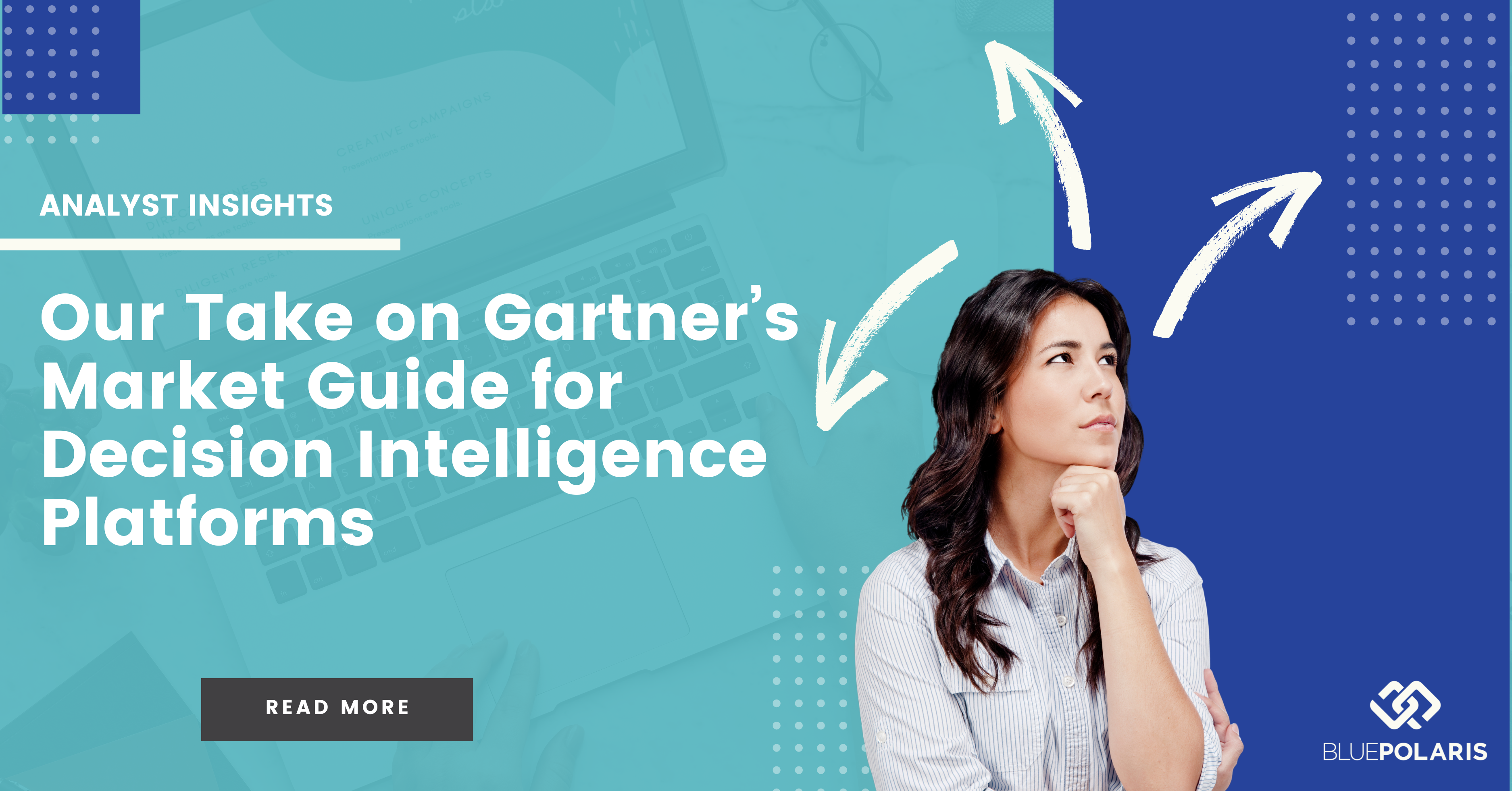Gartner has increasingly been discussing Decision Intelligence as a concept, as well as Decision Intelligence Platforms. Recently, they published a Market Guide for Decision Intelligence Platforms, which is highly recommended reading.
Decision intelligence platforms combine explicit decision modeling, AI, analytics and related capabilities to support, augment or automate decision making, driving business outcomes. Data and analytics leaders can use this guide for investing in DIPs to make their organization more decision centric.
Gartner’s focus on Decision Intelligence represents an effort to consolidate fragmented tools and approaches aimed at enhancing decision-making. They correctly argue that the growing complexity of business environments, regulatory demands, and adoption of consumer technology necessitate improved automation and management of decision-making processes. The proliferation of AI and advanced machine learning technologies is further accelerating this trend.
Our longstanding advocacy for building a comprehensive decision management capability—by focusing on platforms and techniques that allow broad application of decisioning technology rather than piecemeal solutions—aligns well with the report’s emphasis. It is also encouraging to see AI, simulation, data science, and business rules highlighted collectively, a stance we have maintained for more than 15 years and is one of our three best practices.
In addition to technology, Gartner is talking more about modeling decision-making explicitly. This aligns with another of our three best practices – DecisionsFirst as we like to say. However, Gartner still promotes flow-based models for decision-making, whereas the industry has shifted towards declarative models like those based on the Decision Model and Notation standard. These models facilitate quicker requirements gathering, greater business engagement, increased reuse, and better integration of rules with AI and machine learning.
Their emphasis on monitoring and continuously enhancing decision-making is crucial and constitutes the third of our three best practices. Since decision-making is dynamic, it is essential to build systems with flexibility for change and improvement. Selecting Decision Intelligence Platforms based on their support for maintenance and enhancement is therefore key.
As for the technology vendors themselves, they’re a real mix. Some are very focused on specific pieces of the platform (simulation or collaborative decision-making) while others are “legacy” vendors with business rules, optimization or analytic platforms. Some though really do have a complete platform – certainly for the kind of high-volume, operational decisions we specialize in.
If you are looking to adopt a Decision Intelligence Platform or need assistance in evolving your existing system to provide more comprehensive support for robust decision-making capabilities, please reach out.
We’ve been focusing on this for quite some time – long before it was cool enough to have a Gartner market name! 😉

James Taylor – Executive Partner and Founder
James is a partner and the founder of Decision Management Solutions. He is the leading expert in how to use decision modeling, business rules, and analytic technology to deliver Digital Decisioning. For the last 20 years, James has provided strategic consulting to companies of all sizes across all sectors to improve decision-making and effectively adopt advanced analytic technology. He is the author of the popular books “Digital Decisioning: Using Decision Management to Deliver Business Impact from AI” (MK Press, 2019) and “Real-World Decision Modeling with DMN” (MK Press, 2016) with Jan Purchase.
